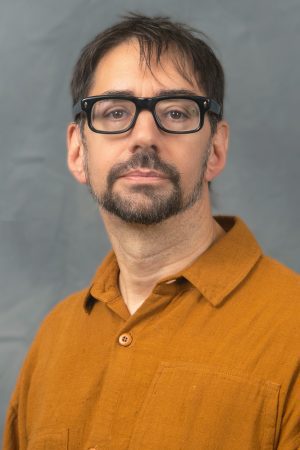Philip Kaffen

Philip Kaffen
Phil Kaffen is an associate professor of Japanese and cinema. His research and teaching focuses on visual images, including cinema, animation, photography, and installation. In particular, the role of images in broader social and cultural issues from militarism and war to sovereignty and ecology form the core concerns of his research. He teaches courses on film and animation history; and thematic courses on the above themes and topics. He has published on documentary cinema, film and urban space, film philosophy in wartime, and artistic responses to catastrophe. He has also done several translations, including of Japanese philosopher Ukai Satoshi on the idea of the planetary; interviews with the political revolutionary Adachi Masao; and most recently, a book on the history of Japanese film called What is Japanese Cinema? by noted scholar Yomota Inuhiko. He is currently working on writings on grace and cinema in the 21st century, as well as image romanticism in 1960s film culture; revising the updated Historical Dictionary of Japanese Cinema